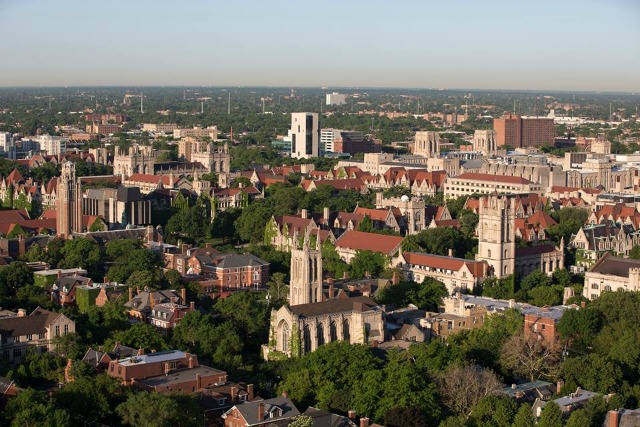UChicago Hasn't 'Banned' Trigger Warnings Or Safe Spaces
By Mae Rice in News on Aug 30, 2016 2:00PM

University of Chicago / Facebook
Last week, the University of Chicago sent a mass letter to incoming freshman that made bold, vague claims heard round the Internet. Sent from the desk of Dean of Students John Jay Ellison, the letter told incoming frosh that the university does not "support" trigger warnings or "condone... intellectual 'safe spaces.'"
Outcry followed immediately. Alumni began sharing critiques of the letter on social media; Chicagoist published one such critique. Basically every publication, including the New York Times, covered the letter. Some outlets also escalated the message of the letter in their coverage; New York Magazine's The Cut said, in its headline, that UChicago had "banned" trigger warnings and safe spaces.
That's not true, though. We dug into what the language of the letter actually means, and here's what we've found so far. Spoiler alert: Nothing is banned.
Really? Trigger warnings aren't banned?
No. When it comes to trigger warnings, each professor decides whether or not to use them. As the University put it in a statement issued last week:
Academic freedom is a fundamental value at the University of Chicago. Among other things it means that faculty members have broad freedom in how they accommodate concerns that students may express, including advising students about difficult material. The University does not mandate a specific approach to these issues.
What about safe spaces?
Not banned either. In the same statement, the University notes that:
Separately from the intellectual values expressed in the letter, the University encourages students to make use of the many support resources that exist on campus. The University provides numerous resources for students’ well being, including private counseling and other forms of support. There are also many campus groups that offer mutual support for students and other members of our community.
In fact, there are a lot of safe spaces on campus. In spite of the stance expressed in the recent letter, University of Chicago has very similar resources to the ones Northwestern University's presidents cites in a 2015 op-ed in favor of safe spaces. University of Chicago has an Office of Multicultural Student Affairs (OMSA); an office of LGBTQ student affairs with a program called, literally, Safe Space; a Hillel house and a Chabad house; and a Catholic house, Calvert House.
There are also plenty of registered student organizations (RSOs) where, despite the University's disdain for safe spaces, "individuals can retreat from ideas and perspectives at odds with their own."
Wait... how can that be?
The University seems to only be against "intellectual 'safe spaces'" in a classroom setting. There are a variety of policies RSOs have to comply with, but they're not required to welcome every perspective. They just can't screen members based on protected statuses: race, color, religion, sex, sexual orientation, nationality or ethnicity, etc.
Does the letter as a whole mean the University is changing its policies in some way?
No. "To be clear, the letter does not signal any change in policies," a spokesperson for the University told Chicagoist. "[I]t’s a cover letter for a book that the College sent to students."